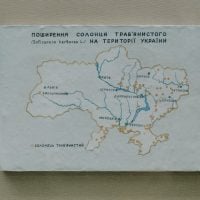Deadline: 31-Jul-2025
The United Nations International Children’s Emergency Fund (UNICEF) has launched a call for proposals to establish quality Early Childhood Development (ECD) classrooms in 150 government schools. This initiative focuses on improving early childhood development and foundational literacy and numeracy (FLN) in Gilgit-Baltistan, Pakistan.
The project aims to support comprehensive implementation planning through the creation of a detailed implementation plan that reflects UNICEF’s guidelines, local realities, and inputs from stakeholders. It includes selecting 150 new schools lacking ECD infrastructure, conducting baseline assessments, and coordinating with the Education Department for transparent and need-based site selection.
The goal is to establish 150 integrated ECD classrooms, reaching around 15,000 children aged 3–10. These classrooms will follow UNICEF’s quality standards and include materials, books, play equipment, and age-appropriate furniture. Each classroom will feature five learning corners—Language & Literacy, Basic Math, Science, Home/Health, and Creative Arts—designed to promote holistic child development.
To ensure local ownership, 150 ECD Management Committees or Mother Support Groups will be formed or reactivated. Orientation sessions for local stakeholders will enhance understanding of integrated ECD concepts and foster community-level collaboration.
A total of 300 ECD teachers—two per school—will be trained in child-centered teaching methods, FLN integration, and curriculum implementation. Training will cover the five developmental domains and include modules on health, nutrition, child protection, and community engagement.
Each classroom will provide daily sessions using inclusive, play- and phonics-based learning approaches tailored to children’s developmental milestones. Regular activities for children and parents will cover cognitive games, storytelling, hygiene, nutrition education, and parental involvement. Monitoring of children’s development and attendance will help guide individualized support and referrals when needed.
Proposals will be evaluated based on clarity and relevance of activities, expected outcomes, cost-effectiveness, sector expertise, experience working with the UN, project management capabilities, and commitment to community accountability.
For more information, visit UN Partner Portal.









































